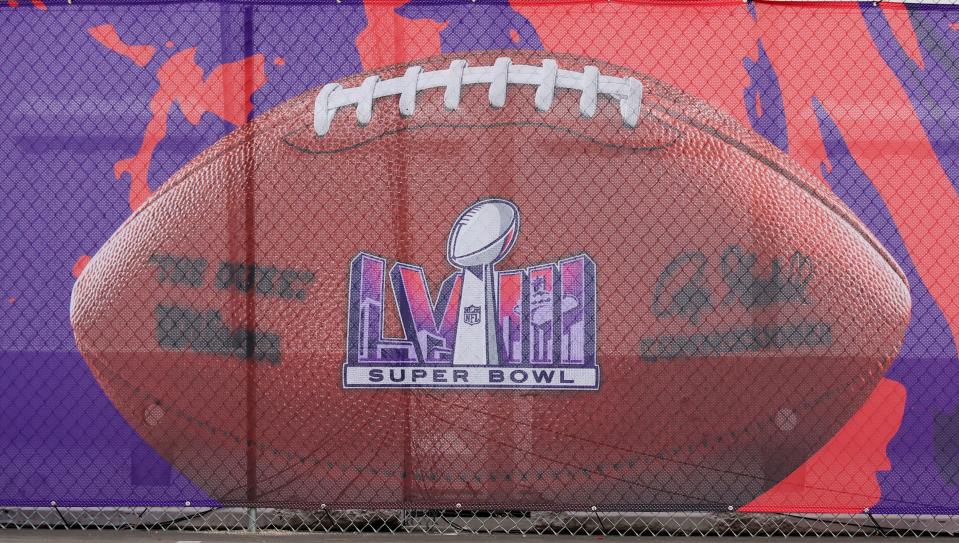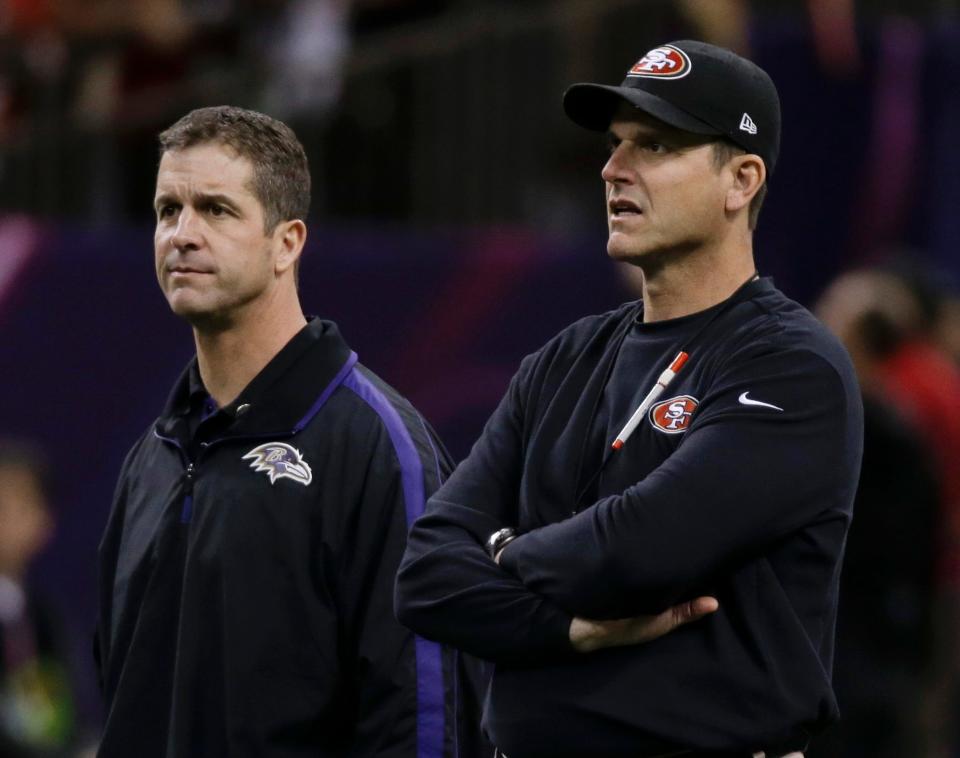Rubin: What the law says about the NFL's Super Bowl trademarks
The NFL hath repented. If your church decides to throw a Super Bowl party next Sunday, it will no longer threaten to sue you to kingdom come.
Hand to God, the NFL once did exactly that. A Baptist church in Indianapolis put out a flyer for a party with a $3 admission charge to cover expenses, and the league threatened to slay it with the jawbone of an attorney. Or something like that; my theology is a bit rusty.
Anyway, the NFL eased up on churches awhile back, under various strict conditions. With everyone else, it'll still promise to unleash the hounds of hell if you so much as cast a shadow across trademarked terms like "Super Bowl," "Super Sunday" and "avaricious $18.6 billion juggernaut."
The thing is, though, you may be perfectly within your rights. Want to advertise that your mom-and-pop bakery sells the ideal sweets for a Super Bowl party? If you put it just that way, trademark law says you're a smart cookie.
The NFL's track record says it will try to bulldoze you anyway, and it has managed to make us believe that it has protections that actually venture beyond the law. That's why you'll hear commercials from now until kickoff referring to "the Big Game" or "the game in Las Vegas" or some other vague substitute for the actual name of the event.

Spoiler alert: It's called the Super Bowl, and we here at First Amendment Headquarters can say it whenever we want — Super Bowl, Super Bowl, sure wish the Detroit Lions were in the Super Bowl.
So can you, if you don't mind getting a cease-and-desist letter from a high-priced law firm.
RUBIN: Detroit Lions losing to San Francisco 49ers hurt, but fans are ready for next season
Brand names and bullying
In fairness, said clinical law professor Nancy Costello, the NFL needs to protect its trademarks, lest they fall into the public domain.
Aspirin used to be a brand name, pointed out Costello, of the Michigan State University College of Law, and so did cellophane and linoleum. Check your zipper on an escalator and yep, that’s two more proper nouns that became general terminology because the trademark holder didn’t properly police them.
But there’s a principle called nominative fair use, she said, that basically makes it OK to use a thing’s name to talk about the thing.
There’s also basic public relations, wherein a league full of enormous people in the employ of billionaires picks on Fall Creek Church of Indianapolis for trying to host a little social gathering and get paid back for the chips and dip.
“They look foolish,” Costello said. “They need to be careful about that, when they beat up on somebody little.”
But that’s sensibility, not legality, and the NFL doesn’t much care — as witness a case involving the University of Michigan’s former head football coach, Jim Harbaugh.
In 2013, Harbaugh was coaching the San Francisco 49ers. His older brother, John, was and remains the coach of the Baltimore Ravens. They met in that year’s Super Bowl, and John’s team won.

Astutely foreseeing the unprecedented fraternal matchup a year ahead of time, and thinking he might sell a few T-shirts, an Indiana fan named Roy Fox applied for trademarks for the terms “Harbowl” and “Harbaughbowl.”
The NFL demanded that he abandon the idea, claiming that consumers might confuse Harbowl with the Super Bowl. Fox resisted. The NFL responded with a letter explaining that it would be “forced to file an opposition proceeding and to seek the recoupment of our costs from you.”
Being neither wealthy or a lawyer, Fox caved, but first he had a trifling request: how ‘bout some Indianapolis Colts tickets?
The NFL said no.
Desist and discard
Getting back to nominal fair use, no one disputes that companies pay big dollars to be the official acne cream or limburger cheese of the NFL, and the league needs to protect those firms' investments.
If that mom-and-pop bakery claims it's the official cookie purveyor of the NFL, Costello said, or uses similar typeface to the NFL's and maybe slaps Roman numerals across a trophy on its ad, that's a problem.
But if Patty's Pierogi Palace says it can sell you the perfect Polish platter for your Super Bowl party, that's different. It's not claiming an association.
The NFL's contention is that everyone else can just say "the Big Game" and go away. Of course, that would only work because the rapacious league's attempt to trademark that exact phrase was punted out of the patent office after Stanford and the University of California-Berkeley pointed out that their annual football clash had been called the Big Game for more than a century.
If you're Patty at the Pierogi Palace, you can go ahead and post your ad online or place it in a local shopper, knowing that virtue and the law are on your side.
You should also know that if the NFL sees it, you'll get a cease-and-desist letter. But if it's a week or two before the game and your ad is already everywhere you need it to be, what do you care?
Courts don't want their dockets clogged with minor lawsuits, Costello said. The threat always come first, and it won't cost anything for Patty to open the letter.
Her only expense will come when she frames it and hangs it on her wall.
Neal Rubin usually makes chili for the Super Bowl Super Bowl Super Bowl, but pierogi are suddenly sounding good. Reach him at NARubin@freepress.com.
To subscribe to the Free Press at discount rates, click here.
This article originally appeared on Detroit Free Press: What the law says about the NFL's Super Bowl trademarks

